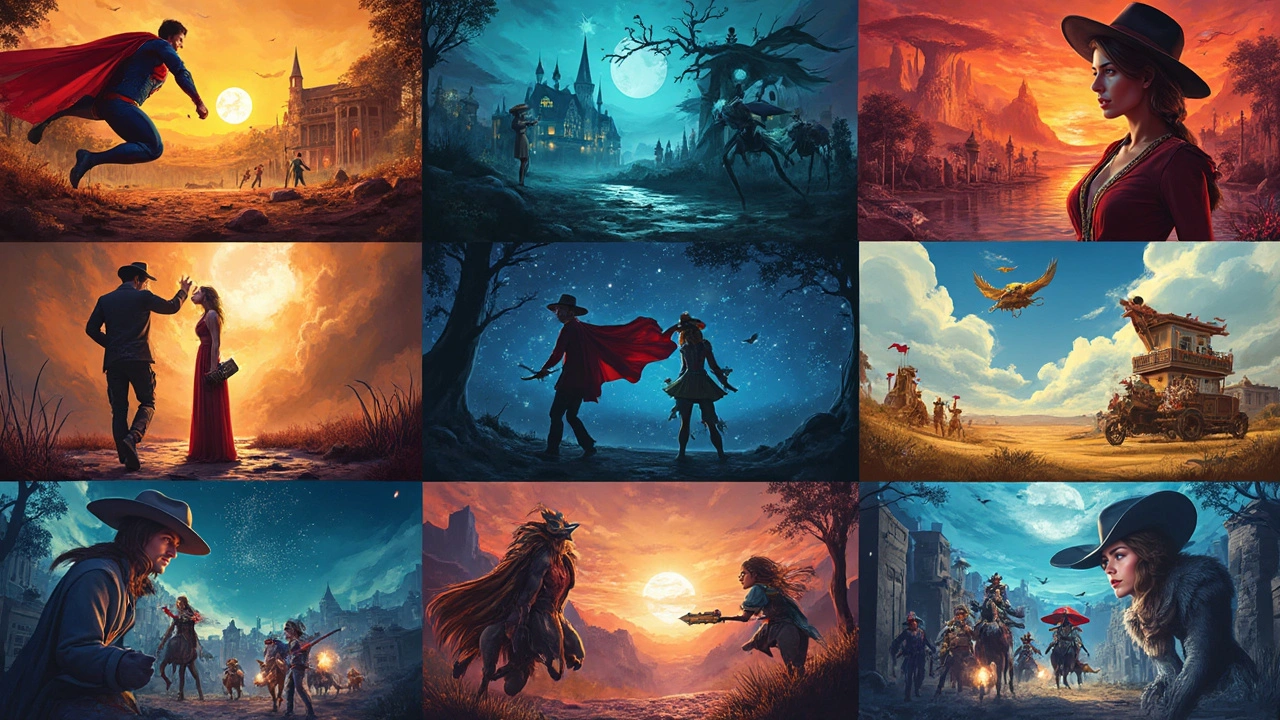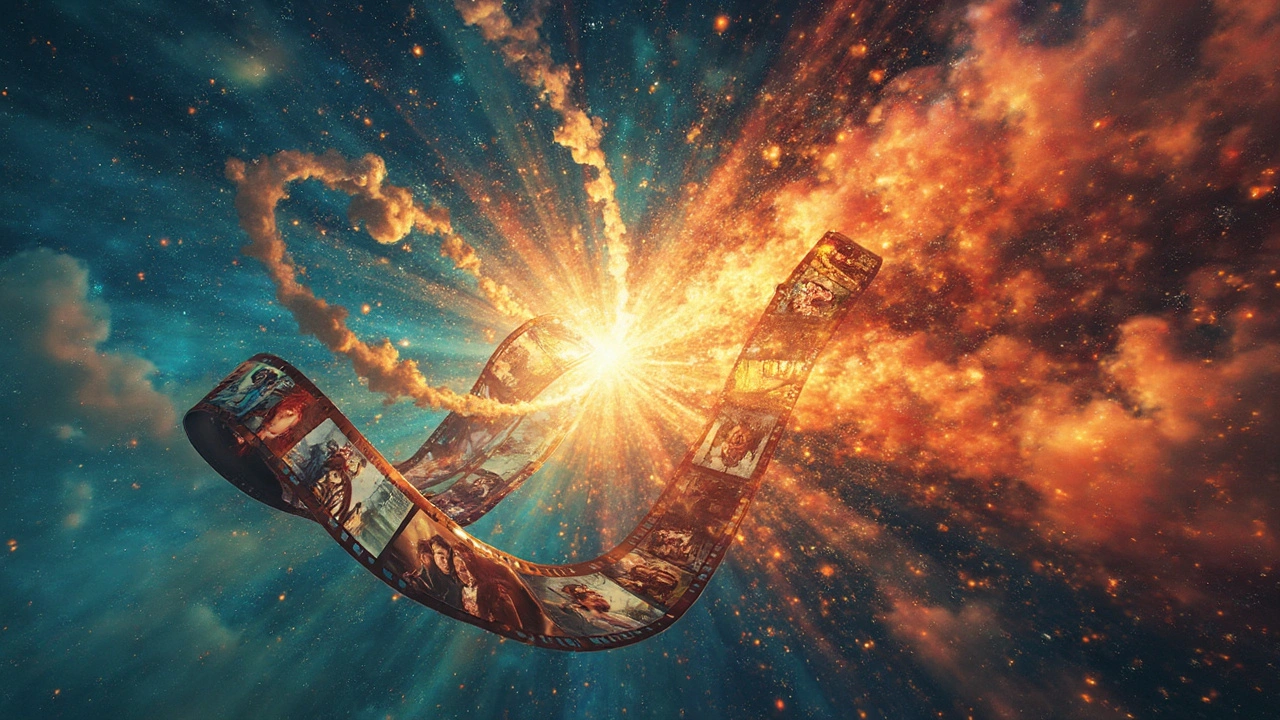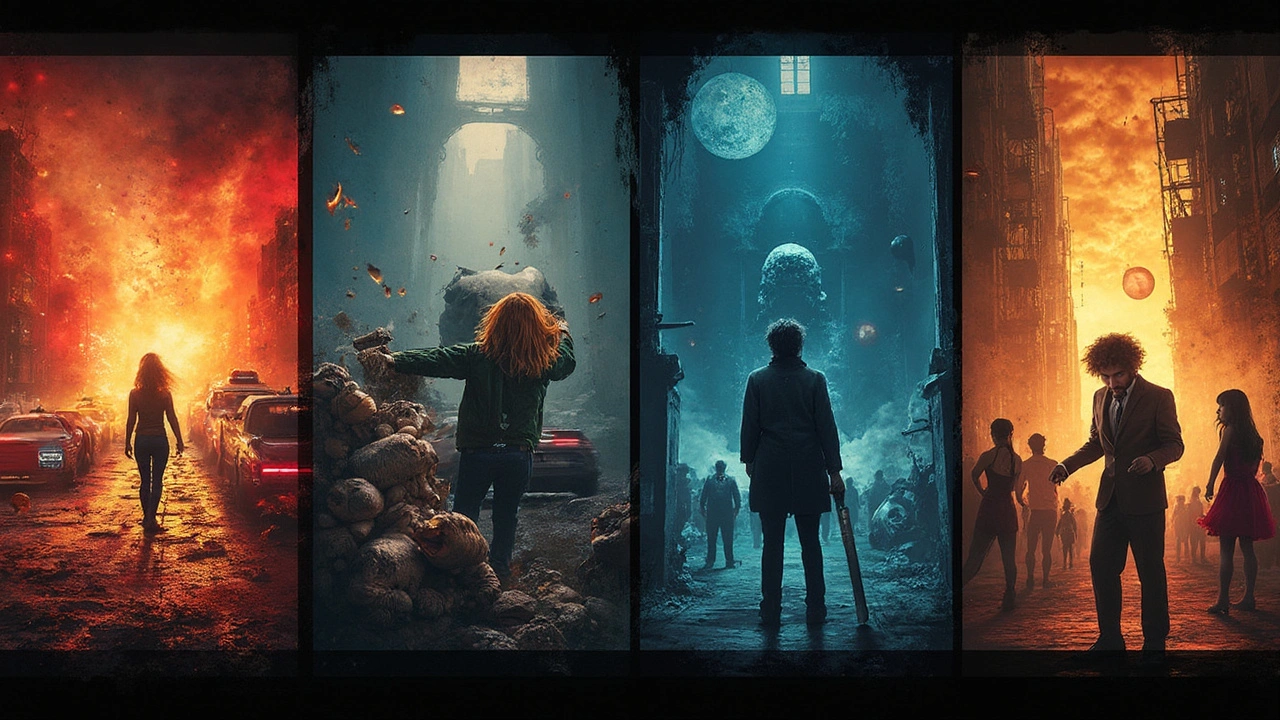Ever felt overwhelmed choosing a movie to watch? You're not alone. With so many films out there, knowing the different types can really help narrow down your choices. Let's break it down into digestible bites, shall we?
First off, meet the adrenaline-pumping world of action movies. These are your go-to when you're craving excitement and big explosions. Think of chases, fights, and heroes saving the day. Curious to know which movie holds the record for the most extensive car chase? Look no further than 'The Blues Brothers', which is, interestingly, a mix of action and comedy.
Action Movies
Action movies are like roller coasters in film form – they're made to get your heart racing with excitement. If there's one thing you can count on with action movies, it's an adrenaline rush. These films are often packed with elements like car chases, epic fights, and explosive scenes that leave audiences on the edge of their seats. Ever seen 'Mad Max: Fury Road'? It's a perfect example of a non-stop action-packed ride.
What really makes an action movie special? It's not just about the stunts; it's about the story that fuels them. Take for instance ‘Die Hard’ – a masterpiece where tension and action come together with a relatable underdog hero making it a timeless film.
Elements of an Action Movie
- Chase Scenes: These scenes involve high-speed pursuits, usually with cars or on foot. Famous for their coordination and filming techniques.
- Fight Sequences: Choreographed martial arts or just brawling, these are key to creating suspense.
- Explosions: Often used to heighten drama and showcase the stakes.
- Hero’s Journey: A relatable protagonist with an admirable goal and many obstacles to overcome.
Fun Fact
Did you know that the action genre consistently features some of the highest-grossing films? If we look back at the past decade, the 'Fast & Furious' franchise stands out with its combination of speed and thrill.
So next time you're seeking adventure without leaving your couch, consider firing up an action movie. Just be ready for a bumpy ride full of unexpected twists!
Comedy
Laughter is the best medicine, right? That's exactly why comedy movies have been stealing the show for ages. They range from slapstick to satire, each bringing a unique flavor of humor to the table.
Let's kick off with slapstick, a classic form that relies on physical comedy. Think 'Mr. Bean' or the legendary Charlie Chaplin. They've got an unmatched ability to make folks laugh without saying a word—it's all about exaggerated gestures.
Subtypes of Comedy
Comedy is quite the umbrella and has several sub-genres. Romantic comedies, or romcoms, marry humor and love stories. Famous titles like 'Notting Hill' or 'When Harry Met Sally' capture the ups and downs of romance, sprinkled with comedic moments.
- Stand-Up Comedy: Originals like Eddie Murphy and modern stars like Kevin Hart bring life to this genre, sometimes translating their stories for the screen.
- Black Comedy: Mixes dark themes with humor. If movies like 'Fargo' or 'Dr. Strangelove' ring a bell, you've dipped a toe into this intriguing genre.
- Parody: These poke fun at other movies! You can't miss classics like 'Scary Movie', which hilariously lampoons horror films.
If you're curious about the numbers, comedy consistently ranks as one of the top-grossing genres at the box office, comfortably filling cinemas worldwide and earning big bucks. Here's a fun fact: 'The Hangover Part II' reportedly grossed over $580 million globally—a testament to comedy's universal appeal.
Next time you're in the mood to laugh, remember there's a whole spectrum of film genres waiting to tickle your funny bone!
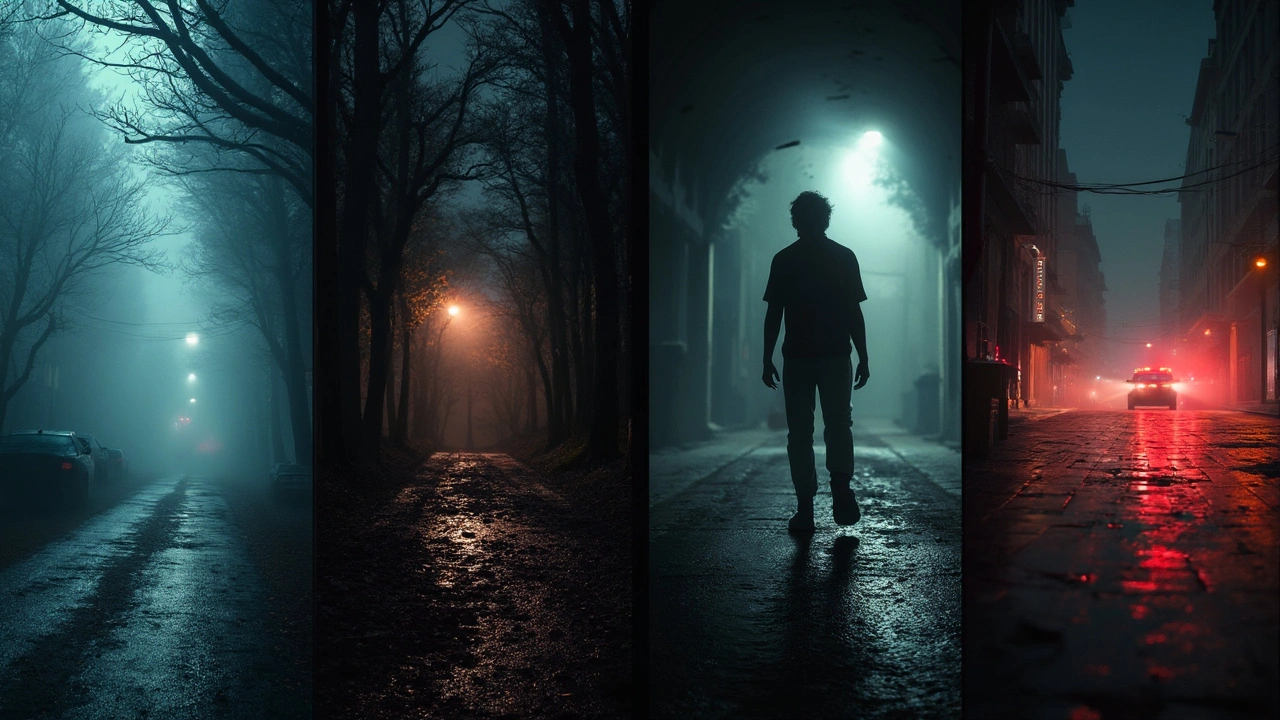
Drama
Let's dive into the heart of storytelling: the drama genre. Dramas revolve around realistic characters, settings, and storylines that often reflect societal issues, personal struggles, or day-to-day life challenges. They aim to evoke emotions and offer audiences a deeper connection to the on-screen characters and scenarios.
Dramatic films usually depict strong narratives that focus on character development and emotional themes. Remember the tear-jerker 'The Shawshank Redemption'? It's a classic example of how a drama can touch hearts with a story of hope and friendship against the odds.
The Hallmarks of Drama
The strength of dramas lies in their ability to mimic reality, drawing audiences into the complexities of human behavior. The actors' performances play a key role here, as they bring life and authenticity to the narrative. In dramas, the stakes are high, whether through internal struggles, social challenges, or conflicts with others.
"Drama is life with the dull bits cut out." - Alfred Hitchcock
Sub-genres Worth Noting
Dramas aren't just one-size-fits-all; they come in various sub-genres. Here's a quick look at a few:
- Crime Drama: Delves into the gritty world of crime and law enforcement.
- Historical Drama: Portrays events from the past, bringing history to the big screen.
- Romantic Drama: A mix of romance and emotional turmoil, perfect for when you're in the mood for love stories with depth.
- Biographical Drama: Offers a glimpse into the lives of real people, often mixing fact with fiction.
Fun Fact
Did you know 'Forrest Gump,' an iconic drama, made over $678 million worldwide? Besides the heartfelt narrative, Tom Hanks' unforgettable performance earned him an Oscar for Best Actor. Not bad for a film that takes you on a journey through decades of American history!
Horror
Craving a good scare? The horror genre is here to deliver chills and thrills. Designed to shock and terrify, these films often dive into the darker sides of our imagination. But what makes horror so captivating? It's all about tapping into universal fears—like the fear of the unknown, death, or isolation.
Horror movies come in various shapes and sizes. We've got classics like 'Psycho' and 'The Exorcist' that continue to haunt audiences even today. Ever wondered why people enjoy feeling scared? Some studies suggest that it's the adrenaline rush—our bodies' reaction to perceived danger, which can be surprisingly addictive.
Another interesting fact is how horror has evolved. The 80s gave us slasher flicks like 'Halloween' and 'Friday the 13th,' while recent years have brought us psychological horrors like 'Get Out' that tackle social issues under the guise of scary stories. These films aren't just about jump scares; they make us think while keeping us on the edge of our seats.
The Elements of Horror
- Suspense and Tension: Keeping the viewer guessing and creating a sense of dread.
- Monsters or Villains: From ghosts to serial killers, there's always a big bad to fear.
- Music and Sound Effects: Often underappreciated but crucial for building the atmosphere.
And yes, numbers say it all. In the past decade, horror movies have grossed over $12 billion worldwide, proving that fear sells. So next time you're in the mood for a fright, why not explore something new in the horror category?
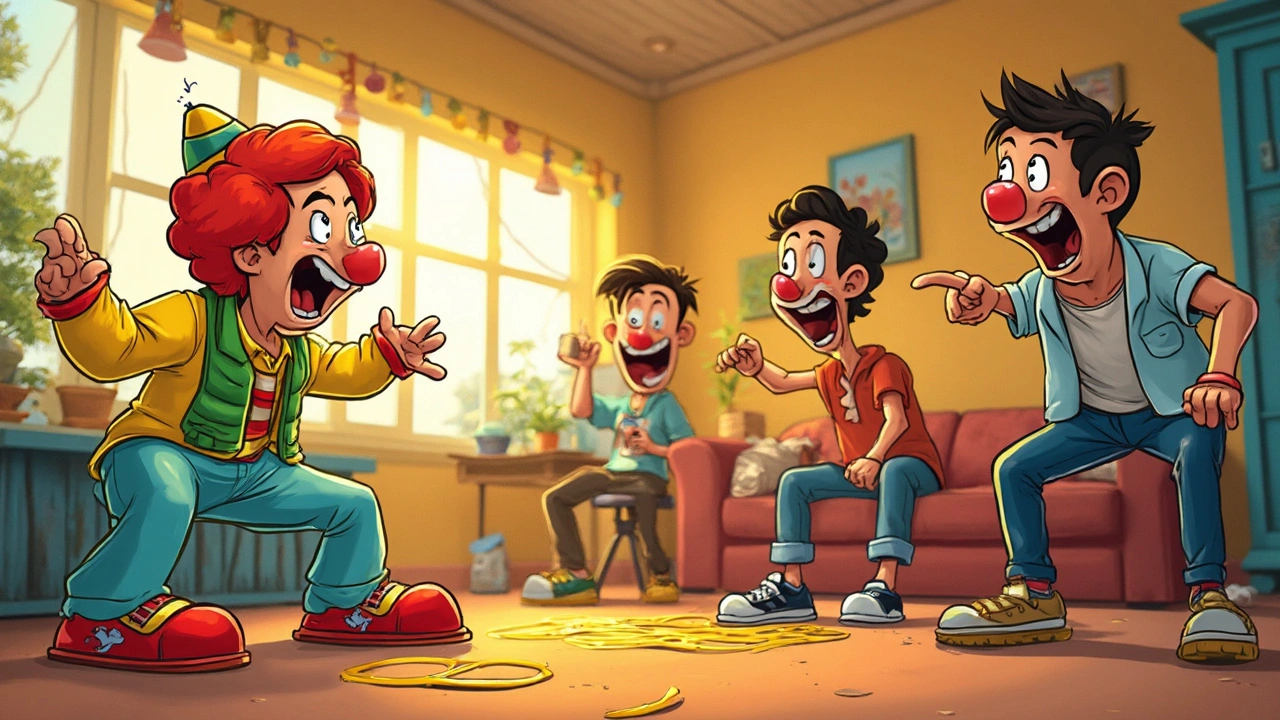
Science Fiction
When it comes to film genres, science fiction, or sci-fi, has a special place. This genre invites viewers to imagine worlds beyond our current reality, often tackling futuristic concepts and advanced technology. Ever wondered how deep space exploration or time travel might look? Sci-fi has you covered!
Science Fiction films often explore the impact of science on society, sometimes pushing the boundaries of what's possible. They mix our curiosity about the unknown with stories about movies that challenge our imagination. Take 'Blade Runner', for instance. Released in 1982, it's noted for its groundbreaking special effects and its ability to combine action with thoughtful themes about humanity.
Classic Sci-Fi Elements
What makes a movie truly sci-fi? While the plot can vary, these elements often pop up:
- Advanced technology, like AI and robots.
- Space travel or exploration of alien worlds.
- Futuristic settings, often dystopian or utopian.
- Time travel, bending the rules of space and time.
One fun fact: Did you know '2001: A Space Odyssey' had a pretty accurate prediction of tablets long before they existed? That's the kind of foresight sci-fi films often portray!
Impact on Real-World Technology
It's fascinating how ideas from these films spark real-world innovations. Think about how communicators from 'Star Trek' gave rise to today’s smartphones. And who can forget the inspiration that Star Wars provided to modern visual effects?
For anyone out to dive deeper into cinema categories, sci-fi remains an exciting, ever-evolving genre, constantly pushing what we thought was the limit. From thought-provoking plots to immersive CGI, these movies are truly out of this world!

